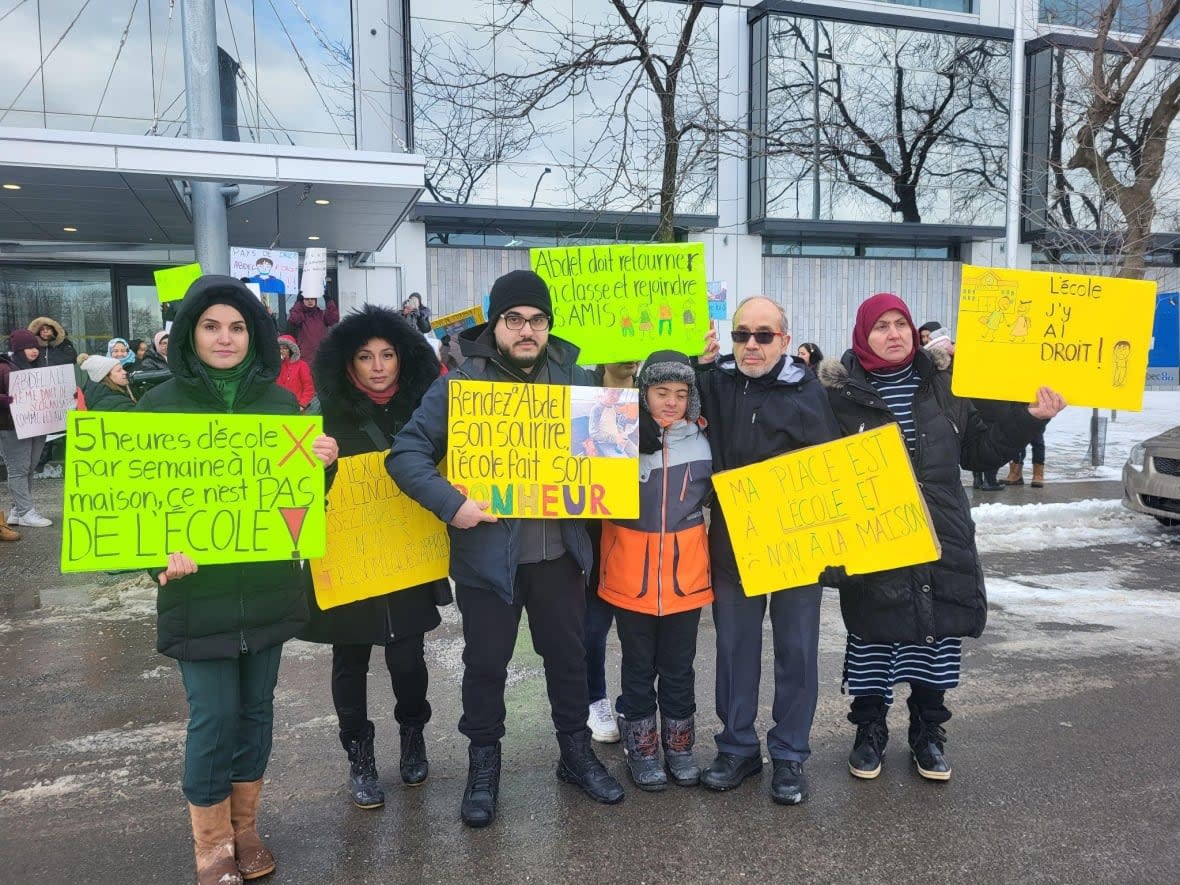Some Montreal children with special needs are being denied access to school, parents say

Abdelkader Djilani Kobibi, 11, hasn't been to school in three months, his family says.
"It's not normal," said Sidi Mohamed Dijilani Kobibi, Abdelkader's brother. "He's not a monster. He's just a kid in need."
Kobibi says his family has been trying to find a solution to get Abdelkader back in school, but so far, discussions with Montreal schools and the Education Ministry have led to nothing.
"They're just trying to throw away my brother and not giving a real reason why he's not able to go to school," he said.
Kobibi was among protesters gathered outside the Education Ministry's office on Fullum Street Saturday.
They're calling on the province to release statistics on children with special needs who are not in school. They also want better training for educational staff and more specialized programs to respond to the students' needs.

A spokesperson for the Education Ministry said in a statement all students have the right to be educated
"We trust our school teams to put intervention plans adapted to each student in place," the statement read."Schools must adapt educational services to students with disabilities, social maladjustment or learning difficulties according to their needs. That said, each case is unique."
But parents of children with disabilities and special needs don't think schools or the government are doing enough.
Samia M'Hari's 14-year-old son has autism, and she says he's only being accepted at a specialized school part-time, meaning he has to stay home two days and three afternoons per week. She says taking care of him at home most days is putting a strain on her career and her son's mental health.
"It's difficult to get through a job, sustain a family and go to work in these conditions," she said. My son is regressing because he doesn't have the chance to be stimulated enough at home."
Sarah Benketira, who was protesting, says cases like Abdelkader's and M'Hari's are not isolated.
"There's a lot of families that actually don't know what to do and knocked at every door with no answer," she said.
"We want to make a change not just for us but everyone."


